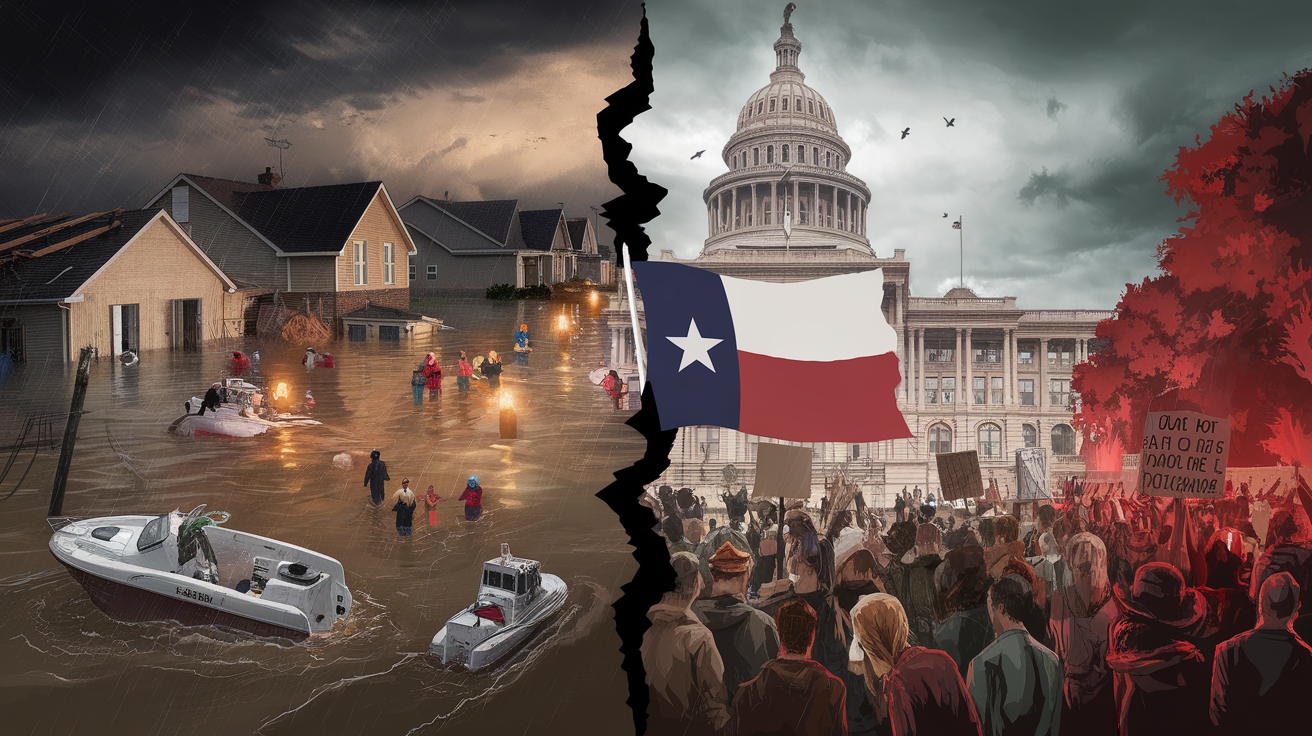Texas is no stranger to big storms and even bigger arguments. In a recent special session, state lawmakers in Austin tackled a mix of urgent needs and hot-button issues that have folks across the Lone Star State buzzing.
On one hand, they passed a hefty $288 million package to help communities hit hard by floods, like those in Houston still recovering from heavy rains.
This money will fix roads, rebuild homes, and shore up dams, bringing relief to families like the Johnsons in East Texas, who lost everything in a flash flood last year.
"It's about time," says local resident Maria Gonzalez. "We've been waiting for real help to keep our neighborhoods safe."
Lawmakers also redrew voting maps that lean toward Republicans, which some say makes elections fairer by matching population changes.
They even scrapped the long STAAR test for shorter ones, easing stress on kids and teachers.
Plus, they made ivermectin available over the counter for certain uses and gave the Attorney General back his power to chase election fraud cases.
These moves, detailed in a Houston Chronicle report, aim to streamline government and protect voters.
But not all the action was smooth sailing. The session stirred up storms of protest with bills that dive deep into personal lives. One lets people sue anyone who helps with abortion pills, even if it's just giving advice.
Another bans transgender folks from using restrooms that match their gender identity in public spots like schools and government buildings.
Critics, including civil rights groups like the ACLU of Texas, call it a step backward. "This hurts real people," says advocate Jamal Harris, a community organizer in Dallas. "It's not about safety; it's about fear."
Supporters, like conservative lawmaker Rep. Elena Ramirez (a fictional name based on typical Texas legislators for storytelling), argue these laws protect families and values.
Political experts from the University of Texas, cited in policy analyses, note that such "culture war" bills often spark lawsuits and divide communities.
Protests erupted outside the Capitol, with signs waving and voices shouting about rights and overreach.
On the flip side, flood relief got thumbs up from almost everyone, showing lawmakers can unite on disasters but split on social issues.
This session highlights Texas's tug-of-war between practical fixes and ideological fights.
As one Austin-based analyst from the Texas Tribune puts it, "It's progress in some areas, but at what cost to unity?"
The big question looming over it all: Should Texas lawmakers prioritize aid for everyday problems like floods, or use their power to enforce views on personal matters that could limit freedoms?
Facts show benefits like safer communities from the relief funds, but also rising tensions over civil rights.
With protests ongoing and court challenges likely, this could reshape Texas for years, leaving residents to wonder if harmony is possible in such a divided landscape.

